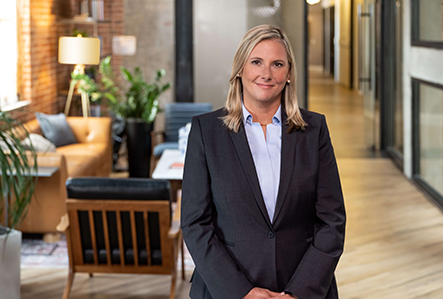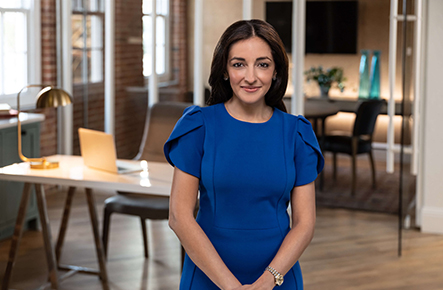The right investment advisor does what’s right for you.
What is an independent financial advisor?
Independent Registered Investment Advisors (RIAs) are professional independent advisory firms that provide personalized financial advice to their clients, many of whom have complex financial needs.
Because these advisors are independent, they are not tied to any particular family of funds or investment products. As fiduciaries, they are held to the highest standard of care – and are required to act in the best interests of their clients at all times. They are registered with either the Securities and Exchange Commission or state securities regulators.1
Why does it matter if your advisor is independent?
Many independent advisory firms are owned by the individual advisors who run them, so they forge deep, personal relationships and have a strong sense of accountability to their clients.
As one of the fastest-growing areas within the financial services industry, independent advisors have increased their assets managed by more than 14% year over year since 2008, and this number is expected to grow another $1 trillion in the next two years (2015-2016) alone.2
Investors with complex needs are increasingly seeking out personalized advice – and one way to ensure you’re getting that is to work with an independent financial advisor.
Benefits of working with an independent financial advisor include:
1. Customized guidance based on your entire financial picture.
Independent advisors are not tied to any particular family of funds or investment products. So whether you need help with retirement planning, a tax situation, estate planning, or managing assets at multiple places, independent advisors have the freedom to choose from a wide range of investment options in order to tailor their advice based on what’s best for you.
2. A relationship that’s responsive, attentive, and personal.
To offer advice closely aligned with your goals, independent advisors must first build a strong understanding of your situation. As a result, many independent advisors focus on building deep relationships with their clients. This often takes regular, ongoing interactions. And because many of these advisors are entrepreneurial business owners, they hold themselves personally accountable to their clients.
3. A fee structure that is simple and transparent.
Independent advisors typically charge a fee based on a percentage of assets managed. This fee structure is simple, transparent, and easy to understand. It also gives your advisor an incentive to help grow your assets. When you succeed, your advisor succeeds.
4. A high level of expertise to support your complex financial needs.
Independent advisors can help investors address the variety of complex investment needs that arise when you accumulate significant wealth. While specific services vary from firm to firm, they are often described as financial “quarterbacks” focused on your holistic financial picture. Some advisors are specialists in certain investment strategies. Others can assist you with comprehensive services, such as estate planning or borrowing, the sale of a business, complicated tax situations, trusts, and intergenerational wealth transfer.
5. Your money is held by an independent custodian, not the advisor firm.
Independent advisors use independent custodians, such as Charles Schwab and others, to hold and safeguard clients’ assets. For many investors, this provides a reassuring system of checks and balances – your money is not held by the same person who advises you about how to invest it. Charles Schwab has provided custodial services to independent financial advisors for over 25 years. We are proud to support over 7,000 of these firms and the important work they do for their clients.
Find a local advisor near you >
1Registration does not imply a certain level of skill or training.
2Charles Schwab Analytics, Insight & Loyalty, May 2014. Cerulli associates, company reports, Charles Schwab Strategy estimates.
This content is made available and managed by Charles Schwab & Co., Inc. (“Schwab”). The purpose of this information is to educate investors about working with an independent Registered Investment Advisor (RIA). The RIAs and their representatives use Schwab for custody, trading, and operational support. Many independent RIAs and other financial services professionals receive compensation for services in a variety of ways. It is the responsibility of each investor to determine which method of compensation offers the lowest total costs and best serves the interests and needs of the investor.
©2021 Charles Schwab & Co., Inc. All rights reserved. Member SIPC. CC0511789 (0516-FDVC) MKT91807-00 (06/16) 00166488



